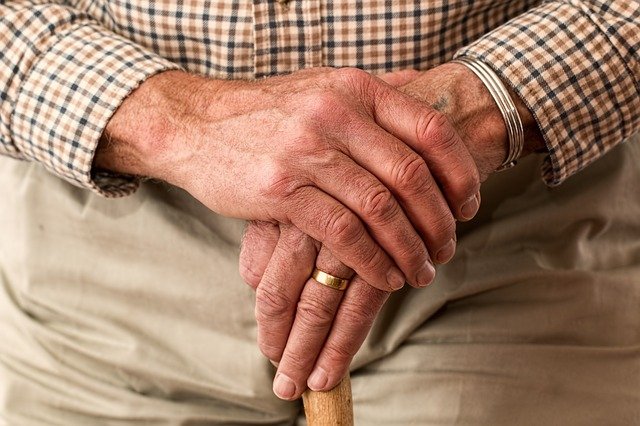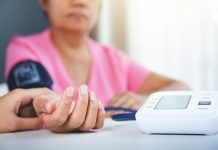
Going for a walk outside, reading, listening to music — these and other enjoyable activities can reduce blood pressure for elderly caregivers of spouses with Alzheimer’s disease, according to a new study.
The study included 126 caregivers enrolled in the UCSD Alzheimer’s Caregiver Study.
The caregivers were 89 women and 37 men, average age 74 years, providing in-home care for a spouse with Alzheimer’s disease.
The caregivers provided information on how often they engaged in various pleasant leisure activities.
The researchers find some caregivers had high levels of enjoyable activities, including spending time outdoors, laughing, watching TV, listening to music, and reading or listening to stories.
About half of caregivers said they exercised frequently.
Caregivers who had more pleasant leisure activities had lower mean arterial blood pressure (a measure of average blood pressure).
These activities were linked to a significant decrease in diastolic pressure (the second, lower blood pressure number), but not in systolic pressure (the first, higher number).
As expected, caregivers who exercised more frequently had lower blood pressure.
However, other types of “more sedentary, reflective” activities also led to reduced blood pressure. These included reading, listening to music, shopping, and recalling past events.
Blood pressure also decreased after nursing home placement or death of the person with Alzheimer’s disease.
The team suggests that being a caregiver for a disabled loved one is a highly stressful experience, associated with an increased risk of heart disease and death.
Stress may contribute to high blood pressure, which is the strongest risk factor for cardiovascular disease.
These results suggest that leisure activities can prevent the development of high blood pressure in Alzheimer’s caregivers.
The team also suggests 3-4 enjoyed activities each week could have a modest impact on an individual’s blood pressure. From there, the more an individual can do, the better the impact.
The study is published in Psychosomatic Medicine: Journal of Biobehavioral Medicine.
Copyright © 2018 Knowridge Science Report. All rights reserved.
Follow Knowridge Science Report on Facebook and Twitter.
News source: Wolters Kluwer Health: Lippincott Williams and Wilkins.
Figure legend: This Knowridge.com image is for illustrative purposes only.



